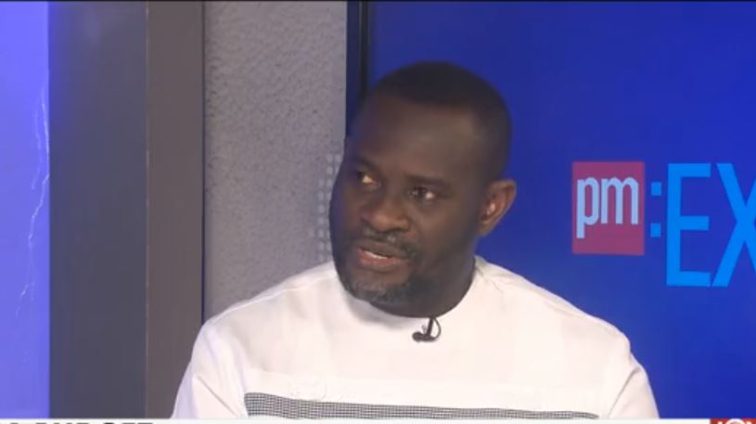The Finance Ministry has admitted that it may struggle to pay salaries of public sector workers in the long run if the country's revenue base, is not increased.
Last week, the Speaker of Parliament Alban Bagbin noted that government may not be able to pay salaries in the next three months.
But speaking on Joy FM’s Top Story on Friday, Deputy Finance Minister, John Kumah said there was no threat to salaries in the short term.
He, however, stated that remuneration of public sector workers may become a problem if nothing is done to increase modes of revenue generation including the passage of E-levy.
“Well, that will be inevitable if we don't raise enough revenue,” Dr. John Kumah responded to Evans Mensah’s question as to whether or not the non-passage of E-levy and the prevailing global economic challenges could affect the payment of public workers in the long term.
According to the Deputy Minister, “If you don’t raise enough revenue in your economy, it means you have to go out there to borrow. And if you are borrowing, that means you are not taxing enough and you look to external sources to be able to meet your expenditure levels.”
In view of this, Dr. Kumah urged all and sundry to rally behind government to support revenue generation in order to accomplish government business.
“So I totally agree with the Speaker, it is about time we looked at the issue beyond partisanship. If we don’t put our house together, we could face such a situation in the long term.
“Let’s look at how we can look internally to ramp up our revenue and position Ghana in a way that our workers can be rest assured that at the end of the month, critical payments can be made.”
Dr. Kumah was however unable to say when exactly government intends to relay the E-levy Bill for consideration by Parliament.
“It will be as soon as possible. This issue of consultation, one, many Ghanaians didn’t understand what the E-levy was about. The whole global economy is changing because of Covid-19. There is much more economic activity electronically than the face-to-face transaction that we know.
“And so it is important to explain to Ghanaians the new tax handle that reflects modern trends in the economy. So as I speak, we don’t have specific timeline,” he stated.
E-Levy
Finance Minister Ken Ofori-Atta, presenting the 2022 budget on Wednesday, November 17, announced that the government intends to introduce an electronic transaction levy (e-levy).
The levy, he revealed, is being introduced to “widen the tax net and rope in the informal sector.” This followed a previous announcement that the government intends to halt the collection of road tolls.
The proposed levy, which was expected to come into effect in January, 2022, is a charge of 1.75% on the value of electronic transactions. It covers mobile money payments, bank transfers, merchant payments, and inward remittances. There is an exemption for transactions up to GH¢100 per day.
Explaining the government’s decision, the Finance Minister revealed that the total digital transactions for 2020 were estimated to be over GH¢500 billion (about $81 billion) compared to GH¢78 billion ($12.5 billion) in 2016. Thus, the need to widen the tax net to include the informal sector.
Although the government has argued that it is an innovative way to generate revenue, scores of citizens and stakeholders have expressed varied sentiments on its appropriateness with many standing firmly against it.
Even though others have argued in support of the levy, a section of the populace believe that the 1.75% e-levy is an insensitive tax policy that will deepen the already prevailing hardship in the country.
Latest Stories
-
Ameri plant relocation strategic for grid stability – Kwabena Donkor
1 hour -
CAF Confederation Cup: Dreams face Zamalek, RS Berkane take on holders, USM Algiers
4 hours -
PURC could have found a better approach to settle issues with ECG – Dr Manteaw
4 hours -
CAFCC: John Antwi sure of positive result against Zamalek
4 hours -
I’ll choose Osofo Kyiri Abosom as my running mate over Akua Donkor – Prophet Kumchacha
4 hours -
LPG prices surge in Ghana, raising concerns over tax impact
4 hours -
I commend PURC for taking courageous step to fine ECG board members – Kwame Pianim
5 hours -
Financing assurance secured from bilateral creditors to aid 2nd review funding for Ghana – IMF Africa head
6 hours -
Man who set himself on fire outside Trump’s Manhattan hush money trial dies
6 hours -
Fuel purchase issues have nothing to do with personal interest – Egypa Mercer
6 hours -
ISRQ2024: Theorose School wins Championship with 0.5 points, heads to Canada
6 hours -
Use your voice, talents, skills to advocate for positive change – UniMAC VC tells graduates
6 hours -
Livestream: Newsfile discusses ‘dumsor’, Ex-MASLOC CEO jail and Election 2024
6 hours -
Otumfuo STEM Festival launched to find problem-solvers, promote science education
6 hours -
Irene Logan ties the knot in colourful ceremony
7 hours

